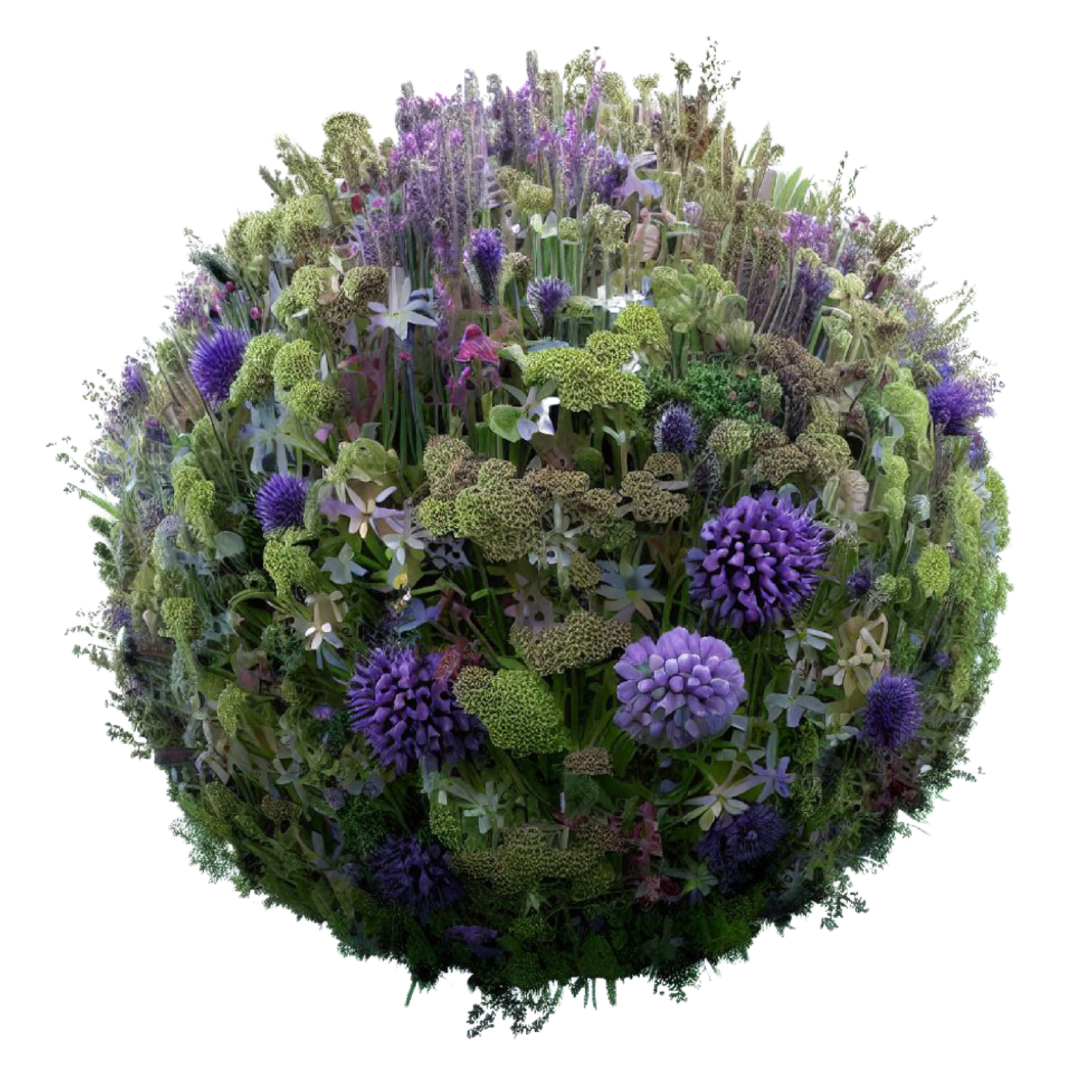We weren’t far from Singapore, but it was another world. Two tropical Indonesian islands to the East of Bintan, which is just South of the Asian city-state.
I have to admit that I’m a very critical tourist – I generally challenge hotels on everything including what’s happening to their sewage, how they source their energy, food waste, disposable items, conservation practices, and anything else that comes to mind. But our trip to the tropical islands of Nikoi and Cempedak has been a revelation. They have been developed not only to minimise their environmental footprint but to have a positive impact too. In fact, they are following the four Cs approach promoted by an organisation called the Long Run – a sustainable travel movement.
The four Cs stand for:
- Conservation: Safeguarding biodiversity
- Community: Enhancing the well-being of communities
- Culture: Celebrating cultural diversity
- Commerce: Recognising that business is central to sustainability

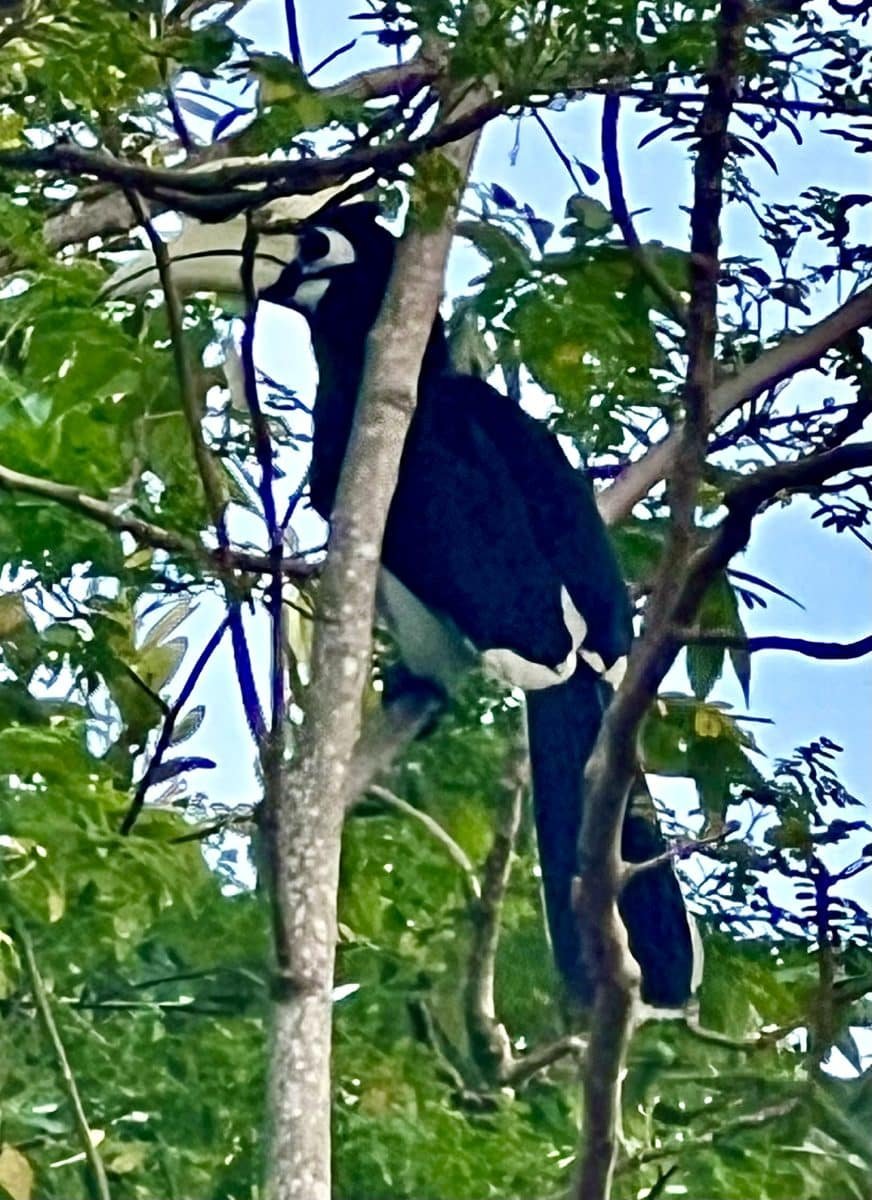
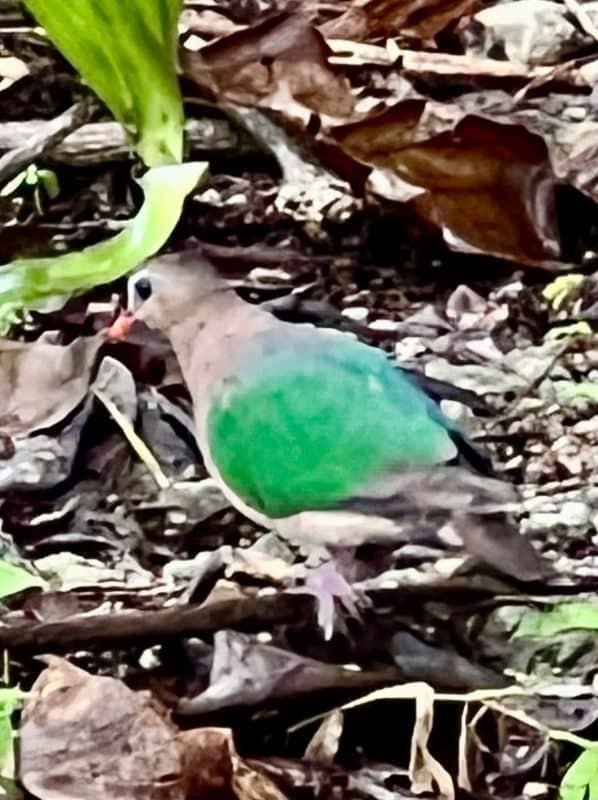
On Cempedak, our bamboo villa sits on top of the island and we could watch the swallows swooping and diving in the day and the bats at night – including some rather large fruit bats. Birds are abundant and often brightly coloured. I saw a very blue kingfisher shortly after we arrived at Nikoi and on Cempedak the rather impressive hornbill is common – one flew past as I was writing this!
Apparently, one of the things that filter out who comes to the islands is the lack of air conditioning. The villas are open to the elements, protected from the rain by locally grown grass rooftops, but embracing the wind flowing through them. And, if that’s not enough there are fans above your bed to cool you at night. We were tremendously comfortable but felt that we were a part of the wonderful natural environment around us. As it happens, it’s one of my bugbears that hotels and public buildings in large cities set their air conditioning so low that you’re actually cold and have to put on a cardigan to go indoors. In fact, one of the hotels we stayed in later in our trip set the aircon at 16C when we arrived, which was a stark contrast to the steamy 30C outdoors – it was horribly cold and we turned it off immediately.
Of course, one of the benefits of not needing large cooling systems is the massive reduction in energy that would be needed. Both the islands have solar panels and battery back-ups which supply between 40% and 50% of their energy. The rest comes from generators. They’re also self-sufficient in water for showers, loos, and pools. Although drinking water is brought over from the mainland it comes from filtered rainwater from the roofs of the hotels’ operational base on Bintan.
I was also impressed with their approach to food. Guests are on a full-board basis because once you’re on the islands there’s nowhere else to go. There’s a set menu for every meal and they check in advance whether you want everything that’s on offer. The great thing about this is that it minimises food waste. There couldn’t be more of a contrast with the hotel where we stayed in Singapore, which had the biggest array of choices for breakfast I’ve ever seen, from every cuisine – somewhere between one and two hundred options! I can’t even imagine how much they must chuck away, every day.
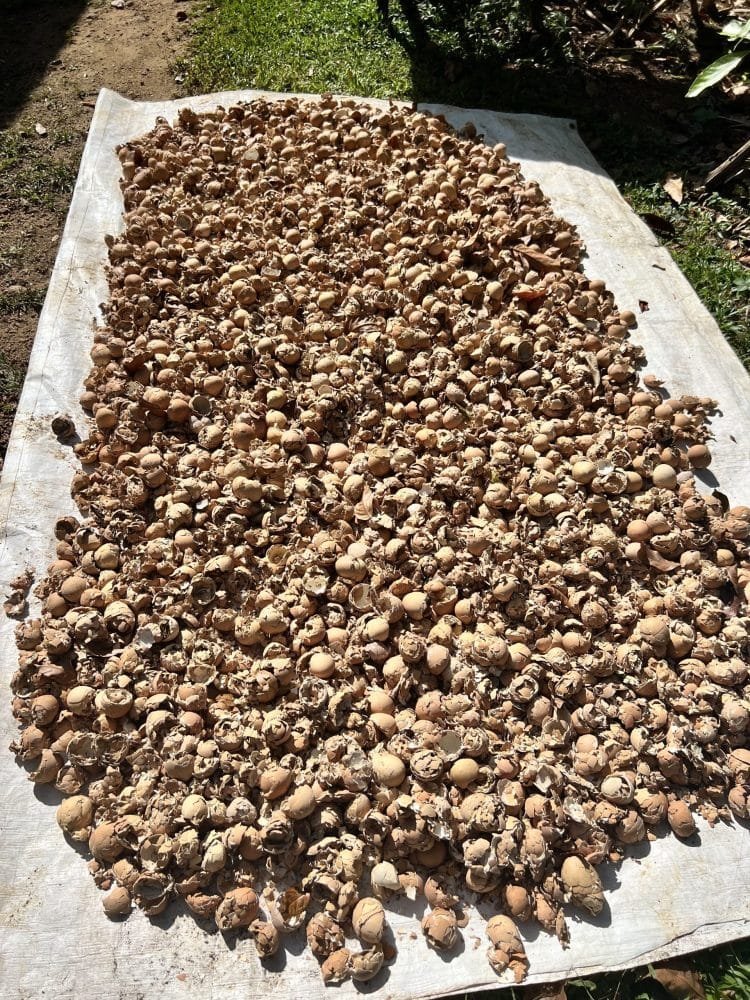
Perhaps even more noteworthy is that whilst some of the waste food, on the islands, goes directly for composting, the rest of it is used to feed black soldier fly larvae! I won’t go into the detail because some people are squeamish but we went had a look as the grubs were produced and processed for feeding chickens at the hotel’s farm on the mainland. In turn, the chicken eggs were brought back to serve guests. One of the benefits is a reduced incidence of salmonella, but I love seeing examples of eco-system thinking put into practice. I haven’t yet found insect chicken feed in the UK – although we do give it to our cat and dog (Yora).
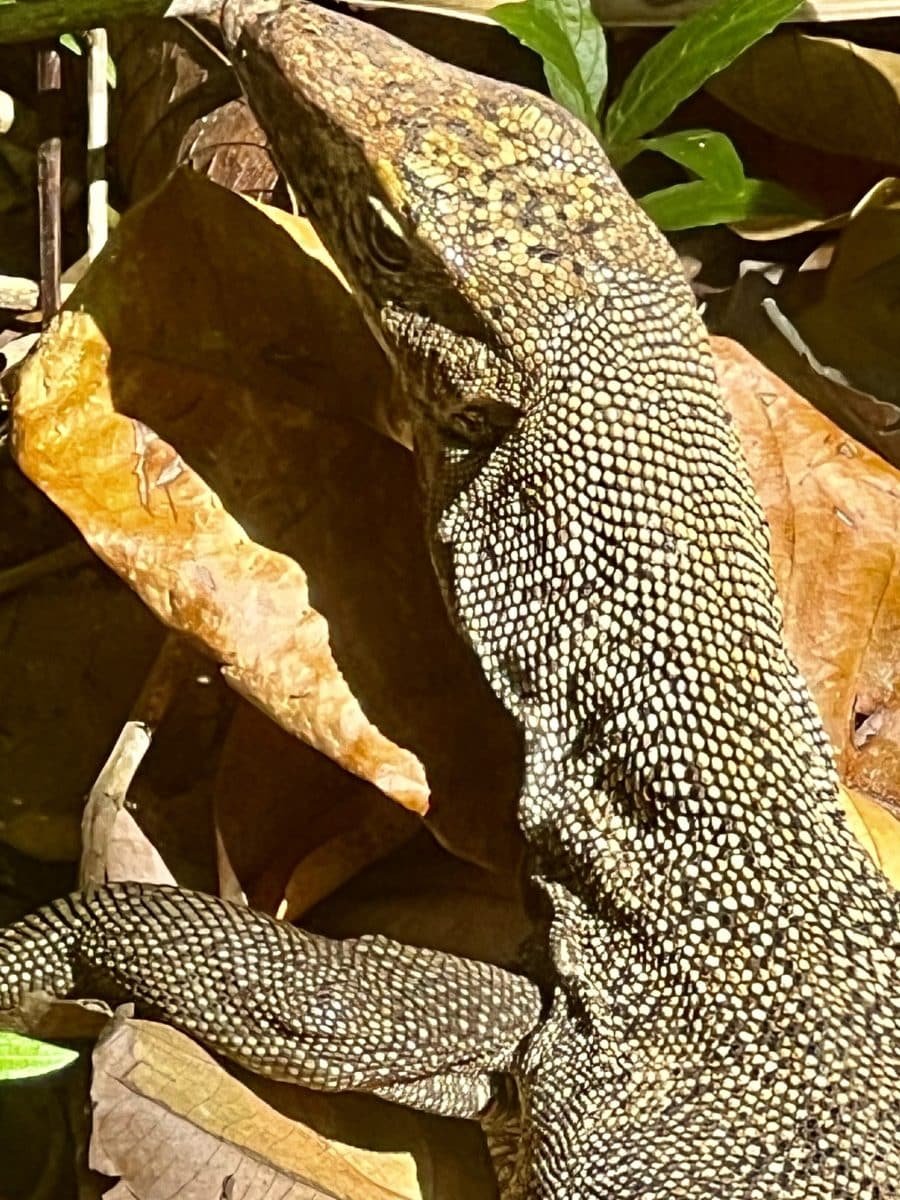
It wasn’t the right time of year for us to see turtles laying their eggs or baby turtles scuttling back to the sea. One of the conservation challenges is how to protect them from the roving monitor lizards on the islands. On the mainland, they’re also threatened by locals who compete with the lizards to eat the precious eggs.
Nor did we see any Pangolins, one of the most threatened species on the planet – it has been hunted close to extinction (see EIA campaign to help protect ‘the world’s only scaled mammal’). The few who live on Cempedak are rarely seen – perhaps they’ve learned to be very cautious of humans. Quite right.
One of the questions I asked on our Nature tour was why there weren’t any monkeys on the islands. Apparently, one indigenous Silver Leaf monkey was spotted swimming to Cempedak but it’s not clear that the island is big enough to support a group of them. I didn’t get the impression that the locals are as enthusiastic about monkeys as I am – they regard them as a bit of a nuisance! Even more of a nuisance though were the cobras. Our guide explained that they were removed before guests came and they have subsequently had to put measures in place to reduce rats because their numbers had been kept down by the snakes.

Going back to the four Cs. Both Nikoi and Cempedak are important for conservation, communities, culture, and commerce:
- They directly employ about 250 people – and many more indirectly.
- They have helped set up 12 Indonesian schools on Bintan Island.
- They are supporting the creation of a large marine reserve in the area.
- They encourage responsible fishing practices in the vicinity
- They sponsor the Seven Clean Seas initiative, which picks up rubbish from Bintan’s shorelines, and are developing plastics recycling programmes (see separate blog).
- They pay local villagers to replant community land – which had been illegally mined – with native species and look after the seedlings.
- They run a permaculture farm – and don’t use pesticides or inorganic fertilisers – to produce some of the food served on the island.

The brilliant thing about hotels such as these is that they’re harnessing resources from tourists coming into the area, to help preserve it and help the local people too.
When Covid stopped visitors from coming to the area, many of these initiatives stalled or even bit the dust. Or course, there are negative impacts of tourism too – but we need to do our best to support the leaders like Nikoi and Cempedek. After all, we’re all in it for the long run!

